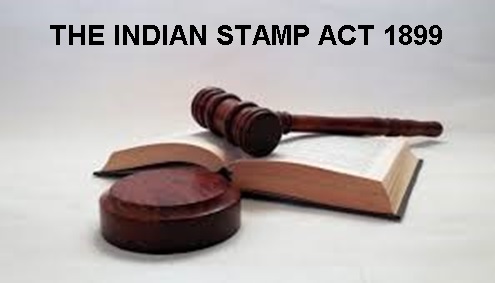COVID19 has thrown out of gear the functioning of commercial and industrial enterprises and institutions. Prolonged spells of Lockdown induced by COVID19 has brought difficulties in performing obligations undertaken. Parties to contracts are worried about the legal consequences of delays and difficulties in performing contractual obligations. No doubt, an exercise to read the terms of contract minutely will take place and parties are likely to invoke “force majeure” as a defence against any allegations of breach and claim for compensation by way of damages.
While economic situation was not already great, the COVID19 has affected lot many people whose livelihood depended on the continued working of industry, trade and commerce in all its sectors. There has been intense debate on possible issues that may arise due to difficulties in performing contractual obligations. Contracts entered into prior to lockdown; contracts entered into during lockdown post lockdown. Since, force majeure presupposes the happening of something that was beyond the control and comprehension of parties so much so that the event has put parties to difficulties that they could not have foreseen when they had entered into the contract.
Contracts entered into during lockdown and post lockdown do not come under that category as parties would have been in a position to appreciate the severity of the situation. Therefore, they would have stipulated terms of bargain duly factoring into new difficulties brought about by COVID19 induced lockdown. It goes without saying that parties must take necessary precaution so that they introduce safety clauses in their contracts visualizing all possible situations, ifs and buts and stipulate safe terms. Therefore, we are confining our thoughts to those who had entered into contracts without factoring such situations.
Force majeure, sometimes referred to as “Act of God” since it is beyond the control of parties could create difficulties in performance for a short term or could render the whole purpose of the contract meaningless leading to frustration. Frustration results in discharge of parties who owed an obligation under a contract to perform something. It is not necessary that parties to a contract should have entered into a written contract with a clause that defines force majeure and writes terms thereto. If there is a clause in a written contract regarding force majeure, and if situations not contemplated under that clause arises, it does not mean that party who could not perform would be left high and dry. It will be matter of interpretation of the terms and their sweep as well as a matter evidence of the frustrating event and its severity.
Ordinarily breaches of contractual obligations are remedied by forcing parties to perform their obligations. In all cases, it may not be possible to obtain an order for specific performance. Specific performance may no longer be possible, in some situations. For example, if goods are not delivered at the prescribed time, readiness of a party to deliver may not serve the purpose to the other party. There may be cases where courts may find legally that instead of specific performance grant of damages by way of compensation is possible. In all cases of breach, a party who has suffered due to breach is entitled to claim damages to compensate him for his sufferings. In certain contracts measure of damages would have been specified as liquidated damages such that what is required to prove would be the fact of occurrence of a breach. Delay in performing an obligation itself will constitute a breach. In force majeure situations too breach occurs, but the same cannot be attributed to the other party, since, sufferings would have been due to Acts of God. In such cases, there may not be any awarding of damages though courts will still look into the facts of occurrence of the breaches and causes thereto.
We have answered few common questions that can arise as regards contractual obligations for your understanding.
1. What is meant by force majeure event?
To claim an event of force majeure, the following ingredients must be established:
- The impossibility of performing contractual obligations is directly related to the happening of such events or circumstances;
- The event or circumstances were not within the reasonable control, direct or indirect, of the parties and
- The party or parties had taken all reasonable care and prudent steps to ensure the performance of contractual obligations, and still they find it impracticable to perform it.
2. Whether the lockdown announced by the Government can be deemed to be a force majeure event?
The statutory lock down imposed by the Government can be considered to be a force majeure event in cases where continued performance has become impossible. There are certain sectors where functioning was not affected by the lockdown.
3. What are the consequences of a force majeure event?
Force majeure is ordinarily understood to postpone performance for such time during which force majeure persists. However, there can be frustrating circumstances too, In India, under the Indian Contract Act, 1872, courts have held that Indian law lays down positive rule of law.
4. Whether Courts will factor such non-performance in the absence of a force majeure clause in the contract
As long as the affected party could prove the circumstance making it impossible to perform the contract, the Court will consider the causes for the alleged non-performance of contractual obligations.
5. If you receive notice from your vendor or customer on invoking force majeure clause in the contract, how should you deal with it?
A company receiving such notice, upon examination of terms of the contract, should answer the notice appropriately. While answering, the company should carefully consider obligations of the parties as per the contract and communicate possible steps to be taken to mitigate the effects of the force majeure event, negotiate on additional delays or costs arising thereto and find ways to perform the contract post the resolution of the force majeure event.
In our opinion, whenever there is a difficulty or practical impossibility, notify the other party of the same at the earliest so that even if the other party alleges breach, and claims damages, the notification illustrates the true and honest disclosure, if true and honest, and enables the other party to look out for remedies. Secondly, there are cases where manufacturing has happened; supply of goods has taken place; and yet payment from other party is not happening. It is important to see how best the one at the receiving end could secure his interests. In all cases, prior to entering into any legal proceedings, parties should explore pre-litigation (or arbitration) mediation so that solutions may emerge as a result of direct negotiation or mediation.
We also caution that the guidance provided herein is for general guidance. We rush to add that no two contracts can be similar despite the commonality of the parties. Settlement of commercial disputes takes not only enormous time but also huge legal costs. One should obtain legal opinion to decide a proper course of action. Solutions may be found through direct negotiation or mediation, conciliation or arbitration!
A pessimist sees the difficulty in every opportunity; an optimist sees the opportunity in every difficulty – Winston Churchill.







